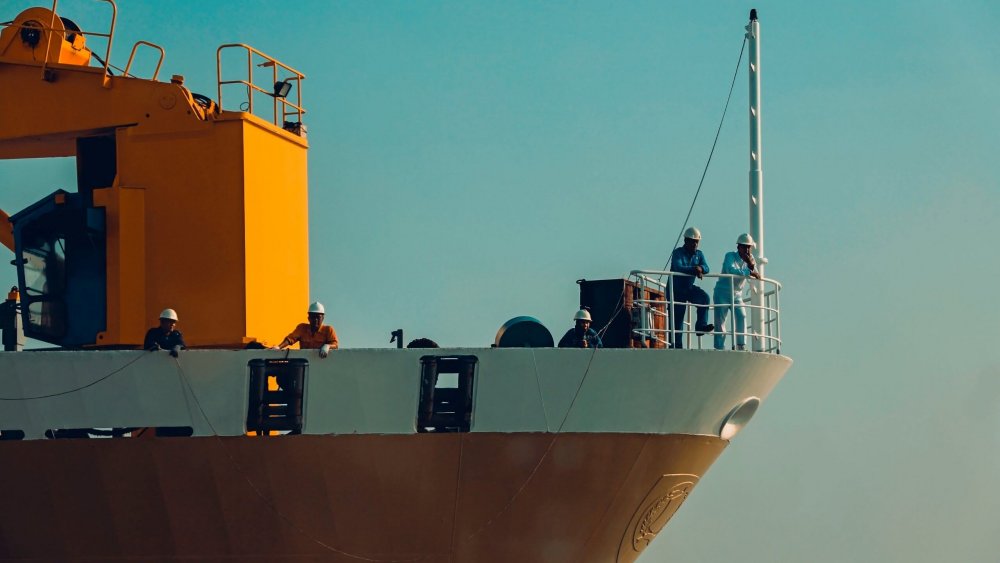
Part 3: The Way Forward
So far, in this series of articles, we have covered The Impact of the coronavirus on crew change logistics in the shipping industry, and The Response of the industry to those challenges. In this third and final article, it’s time to look at the way forward by asking questions such as: Are things going back to normal yet? What have been the most important lessons learned? What policies should governments put in place to prevent a repeat of today’s crew change chaos?
Looking to 2021
Replying to the question of ‘are things going back to normal?’, our contacts were overwhelmingly in agreement that a resolution was not on the horizon anytime soon. Opinions like “we still have a long way to go,” and “we are still far from going back to normal,” definitely show that people working in the crew logistics sector are not expecting a swift turnaround to how things were this time last year.
Travel disruptions, including limited availability and last-minute cancellations, in addition to travel restrictions continue to put a major spanner in the works. “We are pleased to see that more and more countries are easing their travel restrictions, Singapore for example, which is now making it possible to achieve more crew changes. We certainly hope that this will continue,” says Ian Beveridge, CEO of the Schulte Group. “However, many countries – the majority in fact – still don’t allow any foreigners to enter or allow free movement of their own nationals within their borders.”
Looking ahead, Johan Wulder, Jumbo’s QHSE Manager, says that besides the discomfort for the crew and their families, the challenges will continue well into next year. “The crew change schedule is out of balance. For example, as soon as crew can be changed, we will not be capable to replace them because of a shortage of relievers.”
What are the lessons learned?
In contrast to the uniformity of answers to the first question, the comments we received about ‘lessons learned’ has been impressively varied, focusing on topics such as safety, communication and respect. Let’s look at them one by one.
Wulder looks at the streamlining of travel as a potential solution. These include: “international corridors for seafarers, with visa waivers and clear travel guidelines that include testing, dedicated flights to avoid contamination, and dedicated local transport.”
Angela Ibarra, ORCA Crew Services Manager Operations, highlights the importance of crew safety. “With the current knowledge of how different countries are dealing with COVID-19, we could take this into account when noticing first symptoms. We have to use our common knowledge to foresee certain scenarios and act on this In a timely manner. Try to find creative solutions and take into account that the safety of the crew is most important.”
Frank Coles, CEO of the Wallem Group, calls for increased efforts from charterers. “The industry needs to have a clear plan of reliefs and shorter contracts with contingencies. Charters need to have a clause that requires charterers to play their part in the world crisis relief. Somehow, the silence of the charterer has to be broken and they need to step forwards and play their part.”
Ian Livingstone, Managing Director at Clyde Marine Recruitment, emphasizes the value of respect. “The only advice we could offer is to ensure the crew members are looked after and treated with the respect they deserve. Our crews have been fantastic, changing arrangements at short notice, cancellations, early repatriations, delayed repatriations. When it is all over, they will remember the owners that looked after them.”
Beveridge from the Schulte Group stresses the merits of good communication and testing facilities. “It is important to keep up the good relationships we have with our seafarers, by constantly communicating with them and keeping them up to date. Should there be a second wave, then it will be crucial to ensure that there are sufficient testing facilities and adequate readily available supplies of personal protection equipment.”
Tell us your experiences
Our aim with this series of three articles was to give the shipping industry a chance to share their experiences (and air any frustrations they might have) of organising crew changes during the coronavirus pandemic. By including input from a selection of ship management, crew recruitment and shipping companies, we hope to have created a broad overview of the issues at hand. However, the story is not over; the coronavirus is still impacting life and business all around the world. That’s why we want to give you the opportunity to tell your story too.
How is your company handling crew changes during the pandemic? Do you have any great solutions to share with the industry? Maybe you are a crewmember, and you want to tell the world what life is like in quarantine. Whatever the case, we are interested in hearing from you.
Alternatively, you can post your opinions and experiences (in complete anonymity) on this Chatham Chats feed.

